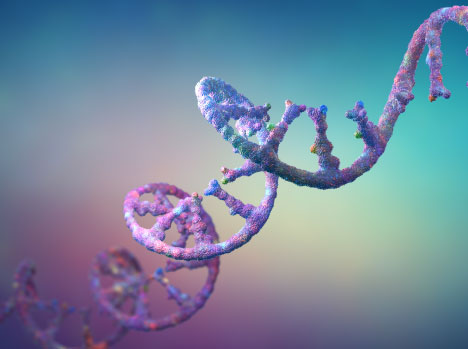A Trans-Tasman collaboration involving New Zealand’s Te Herenga Waka — Victoria University of Wellington’s Ferrier Research Institute and the Malaghan Institute of Medical Research, along with Australia’s Peter Doherty Institute for Infection and Immunity, has developed an innovative mRNA-based vaccine against the malaria-causing parasite, Plasmodium. This breakthrough was made possible through years of cumulative research led by Professor Gavin Painter, among others.
The distinctive approach of this vaccine generates resident memory cells in the liver, crucial in combating malaria. It underscores the vast potential of RNA technology in addressing global health crises and highlights the escalating proficiency in mRNA vaccine development in Australasia.
The team originally explored peptide-based vaccines but shifted to RNA-based vaccines in 2018. This strategic redirection proved fruitful due to the recent success of RNA technology in vaccine development. Unlike peptide-based vaccines which only contain small protein fragments, the mRNA vaccines encode an entire malaria protein, allowing for a broader, more protective immune response.
Further enhancing the vaccine’s potency, it has been combined with an adjuvant developed for cancer immunotherapies. This additive targets liver-specific immune cells, localizing the RNA vaccine response to the liver, where the malaria parasite matures. This approach leverages tissue-resident memory T-cells, distinct from the neutralizing antibodies mechanism used in the COVID-19 vaccine, halting the parasite’s development in the liver to prevent infection spread.
A significant advantage of this vaccine, as highlighted by Dr. Lauren Holz, is its efficacy irrespective of previous malaria exposure. Unlike other vaccines that falter in malaria-endemic regions, this novel vaccine remains effective, generating protective liver-specific immune cells. The team’s future objective is to advance this promising vaccine into human clinical trials, a process projected to span several years.

Check out our mRNA service to expedite your vaccine research
Journal Reference:
Mitch Ganley, Lauren E. Holz, Jordan J. Minnell, Maria N. de Menezes, Olivia K. Burn, Kean Chan Yew Poa, Sarah L. Draper, Kieran English, Susanna T. S. Chan, Regan J. Anderson, Benjamin J. Compton, Andrew J. Marshall, Anton Cozijnsen, Yu Cheng Chua, Zhengyu Ge, Kathryn J. Farrand, John C. Mamum, Calvin Xu, Ian A. Cockburn, Katsuyuki Yui, Patrick Bertolino, Stephanie Gras, Jérôme Le Nours, Jamie Rossjohn, Daniel Fernandez-Ruiz, Geoffrey I. McFadden, David F. Ackerley, Gavin F. Painter, Ian F. Hermans, William R. Heath. mRNA vaccine against malaria tailored for liver-resident memory T cells. Nature Immunology, 2023; DOI: 10.1038/s41590-023-01562-6
PackGene is a CRO & CDMO technology company that specializes in packaging recombinant adeno-associated virus (rAAV) vectors. Since its establishment in 2014, PackGene has been a leader in the AAV vector CRO service field, providing tens of thousands of custom batches of AAV samples to customers in over 20 countries. PackGene offers a one-stop CMC solution for the early development, pre-clinical development, clinical trials, and drug approval of rAAV vector drugs for cell and gene therapy (CGT) companies that is fast, cost-effective, high-quality, and scalable. Additionally, the company provides compliant services for the GMP-scale production of AAVs and plasmids for pharmaceutical companies, utilizing five technology platforms, including the π-Alpha™ 293 cell AAV high-yield platform and the π-Omega™ plasmid high-yield platform. PackGene’s mission is to make gene therapy affordable and accelerate the launch of innovative gene drugs. The company aims to simplify the challenging aspects of gene therapy development and industrialization processes and provide stable, efficient, and economical rAAV Fast Services to accelerate gene and cell therapy development efforts from discovery phase to commercialization.
Related News
Preclinical Studies Highlight Novel Gene Therapy for IgA Nephropathy Treatment
San Diego, CA – October 28, 2024 At the recent ASN Kidney Week 2024 (October 23–27), researchers presented promising preclinical data on PS-002, an innovative gene therapy aimed at treating IgA nephropathy (IgAN), an autoimmune kidney disease. The therapy, developed...
[2024/10/25] Gene and Cell Therapy- weekly digest from PackGene
FeaturedNewsArticlesPackGene's NewsletterReceive the latest news and insights to your inbox.About PackGenePackGene Biotech is a world-leading CRO and CDMO, excelling in AAV vectors, mRNA, plasmid DNA, and lentiviral vector solutions. Our comprehensive offerings span...
Lipin1 Inhibition Enhances Axon Regeneration: A Potential Therapeutic Approach for Spinal Cord Injury
Traumatic injuries to the central nervous system (CNS) often result in permanent functional deficits due to the limited capacity of CNS neurons to regenerate. Although advancements in spinal cord injury (SCI) research have been made, achieving substantial nerve fiber...
CRISPR therapy reduces swelling attacks by 81% in Intellia follow-up study
The promise of a one-and-done CRISPR infusion is beginning to look more real than ever. On Thursday, Intellia Therapeutics announced that an experimental gene editing therapy reduced dangerous and unpredictable swelling attacks caused by the disease hereditary...
Related Services

Plasmids GMP Services
Multiple scales & grade of solutions of various kind of plasmids suitable for multiple treatments in a fast and cost effective way.
READ MORE

AAV GMP Services
Ranging from small-scale AAV production, to large-scale AAV cGMP manufacturing for animal studies.
READ MORE

Technology Platforms
PackGene’s proprietary π-Alpha 293 AAV High-yield Platform increases AAV production by 3 to 8 times that of traditional platforms.
READ MORE

